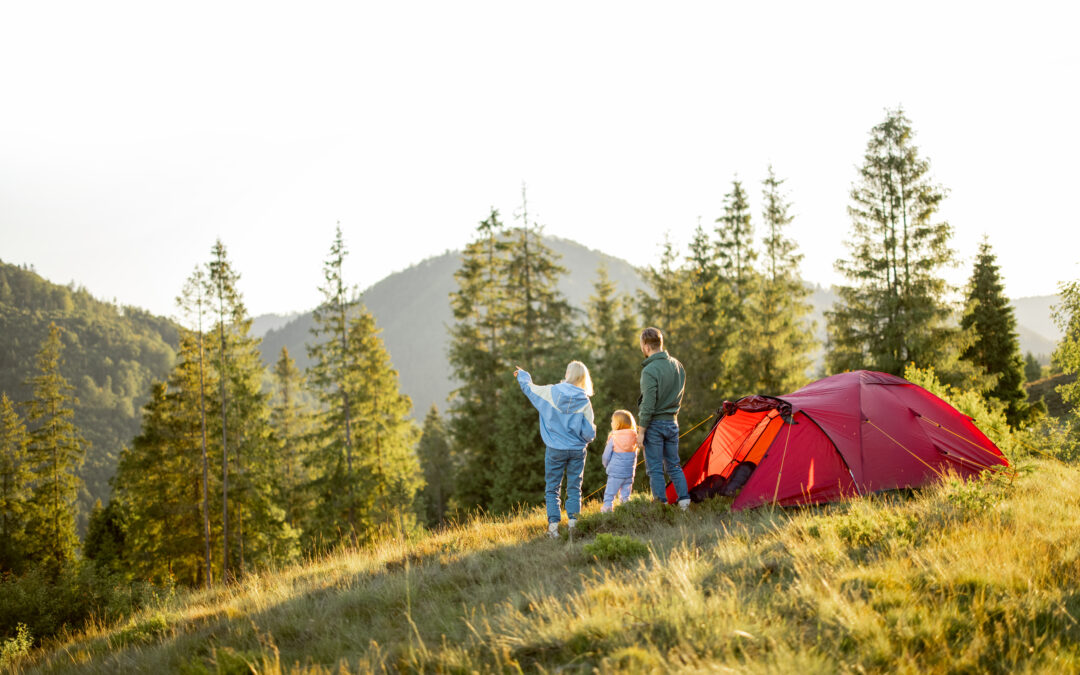
Unfortunately, climate change shows no signs of slowing down—but neither do travelers. As global tourism increases, the need to reduce our travel emissions and practice greater travel-related sustainability is necessary.
In addition to improving the planet’s health, conscious efforts to stay healthy and environmentally accountable are critical in protecting health from climate change impacts. Here are three ways you can do both during your next trip.
Check Local Advisories
Recent studies show that 99% of the global population breathes polluted air, exceeding the safe levels of air quality set by the World Health Organization (WHO). While avoiding air pollutants may not always be feasible, staying informed about your location’s air quality is crucial.
Increasing global warming has led to an onslaught of extreme weather—hurricanes, tropical cyclones, heat waves, wildfires, droughts, tornadoes—with the Union of Concerned Scientists dubbing summer months the “danger season.” Take Phoenix, Arizona, for example, which recorded 53 days of 110°F temperatures in 2020, with over 300 associated deaths.
Meanwhile, massive hurricanes and wildfires have intensified in size and frequency, demolishing communities and knocking out electricity during the hottest or coldest days.
Winter and summer are also conducive to smog build-up, in which harmful factories and smokestack emissions such as ozone, nitrogen oxides, sulfur oxides and particulate matter accumulate in the atmosphere, leading to severe health risks for those of us with respiratory and cardiovascular conditions.
You can focus on protecting your health from climate change impacts by doing the following:
- Always look up the weather and air quality advisories for your area. Several online tools make it easier to determine the particulate matter and ozone levels by location.
- Be sure to pack essential medicine if you have a pre-existing condition that puts you at an increased travel risk.
- Attempt to visit places that have better air quality and fewer pollutants.
Minimize Your Carbon Footprint
As an eco-conscious traveler, you should always look for ways to reduce your carbon footprint. You may not think twice at home about recycling or packing a few reusable bags for groceries. However, you might notice that your destination’s waste management isn’t as up to par as back home.
In these situations, taking extra care of how you dispose of waste and consume energy is essential. Otherwise, your favorite vacation spot may become increasingly polluted over time.
Remember that healthy, safe travel and climate change relief go hand-in-hand. And there are many opportunities to decrease your carbon footprint, such as:
- Only book a flight if you intend to travel to a faraway place and can’t drive.
- Bring reusable water bottles, food containers, trash bags and utensils from home.
- Aim for energy efficiency by turning the lights off, opening windows for ventilation and reducing water consumption.
- Shop locally grown foods and eat the local cuisine wherever possible.
- Purchase meaningful souvenirs you intend to keep—or opt for experiences over material items.
- Rent bicycles or use public transportation to get around and explore.
Prevent the Spread of Disease
Climate change can transmit disease at high speed due to hotter temperatures and humidity prolonging transmission seasons and making it easier for diseases to spread. Unfortunately, unpredictable weather has made it particularly challenging to understand transmission cycles.
Heavy rain and cyclone events often contaminate drinking water and expose populations to severe water-borne bacteria, viruses and parasites. Mosquito-borne diseases, such as malaria and dengue, are also more prevalent and have reached unlikely regions thanks to the warming planet.
Of course, protecting your health from climate change has become ever more critical since the COVID-19 pandemic swept across the globe. While we’re fortunate to have vaccines to prevent serious illness, vaccinated people can still carry transmissible viral loads.
Read up on your destination’s COVID-19 measures. Are you required to have a negative test result before you can enter the country? Will you have to wear a mask? What are the current case counts?
Early findings suggest that COVID-19 has lower transmissibility closer to the equator, where temperatures tend to be hotter and more humid—however, this was mainly based on lab studies. The WHO recognizes that COVID-19 cases may fluctuate despite hotter or colder weather conditions.
If you get sick while traveling, you risk spreading your infection to locals and fellow tourists. Protect yourself and others while traveling by practicing the following health measures:
- Learn about the common health risks at your destination.
- Visit your doctor before traveling and ensure you’re up-to-date on your immunizations.
- Ask your doctor if there are any travel medications and vaccines you may need to protect yourself from mosquito- or water-borne diseases.
- Wear bug repellent.
Travel Responsibly by Protecting Your Health From Climate Change
A responsible, eco-focused traveler has two things on their mind at all times: their safety and the environment. We must all hold ourselves accountable for making eco-friendly choices when visiting a destination, just as we must ensure we take the proper precautions to care for our health and well-being.
Related Posts


How to Avoid “Traveler’s Tummy” and Protect Your Gut Health
Traveling sounds like the best way to spend your time off until you experience traveler’s tummy, turning your vacation into a spiral of digestive concerns. If you’ve been in and out of the bathroom after eating a local delicacy on the street, you’ve likely eaten...

5 Tips to Prepare for a Restorative Outdoor Escapade With Your Family
image source Sometimes, everyone from mom and dad to the littlest kids, needs a nice vacation from everyday life. Are you a family that feels like they need a break? Then it’s time to grab your loved ones and have a restorative...